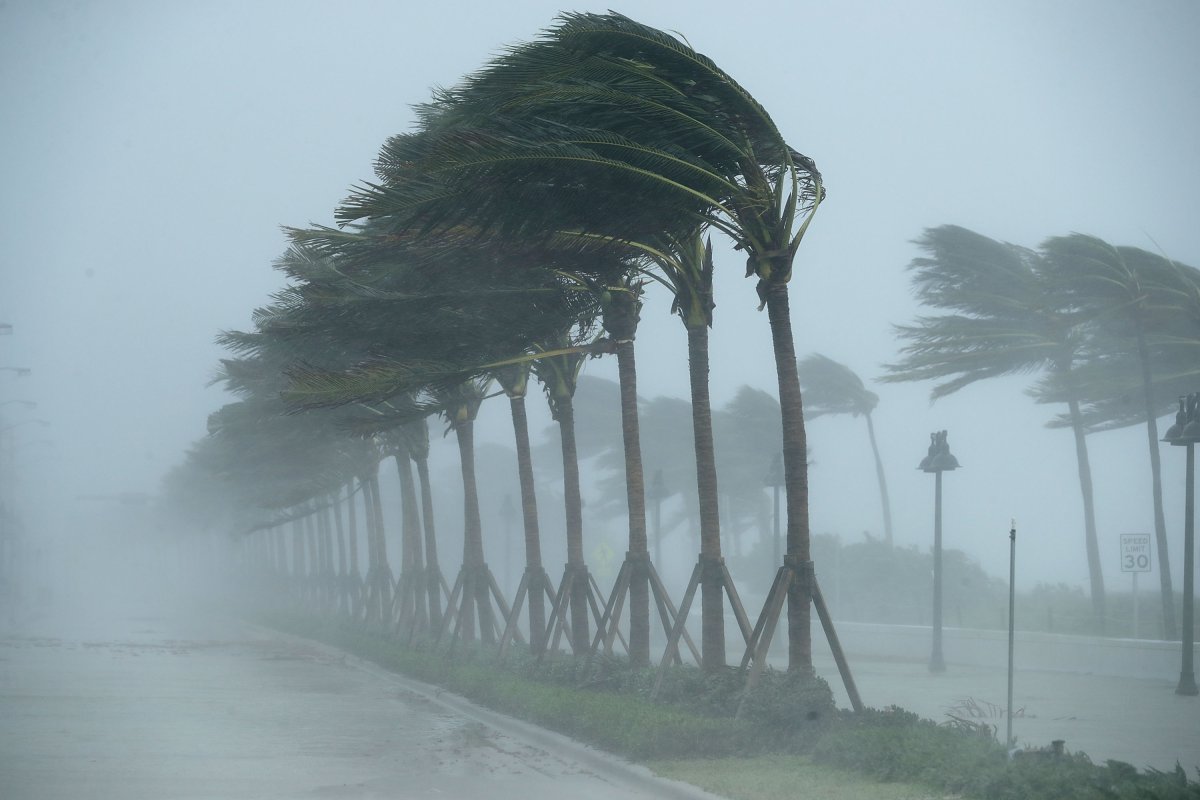AccuWeather meteorologists raised the alarm about an "explosive" hurricane season that could put certain areas of the United States at a higher risk based on new predictions.
The Atlantic hurricane season begins on June 1, and meteorologists are already anticipating that the season will be severe. On Tuesday night, AccuWeather published a report and identified one part of the U.S. that could be at a higher risk for hurricanes.
Two factors contributed to the predictions: the possible return of La Niña and unnaturally warm waters in the Atlantic Ocean could prove to be an energy source for developing storms.
"We expect that the Gulf Coast, especially the Texas coast, will be at a higher risk for direct impacts from a tropical system this year," AccuWeather long-range expert Paul Pastelok said in the report.
AccuWeather's report comes three months after the National Oceanic and Atmospheric Administration (NOAA) identified 2023 as having the fourth-most named storms in a year. In a report published in late November, the NOAA called the 2023 Atlantic hurricane season "above-normal" and said the storms were characterized by "record-warm Atlantic sea surface temperatures and a strong El Niño."
AccuWeather lead hurricane forecaster Alex DaSilva told Newsweek that last year Tropical Storm Harold was the only tropical system impacting Texas. The storm was mostly viewed as beneficial, as it brought rain to areas struggling with severe drought.
"This year we are much more concerned about something stronger impacting the state during the hurricane season," he said.
DaSilva also said there is an increased risk in Florida, as well as North Carolina and South Carolina if storms hook around to hit the Atlantic coast before heading out to sea.
Louisiana, Mississippi and Alabama have an average risk this year, DaSilva said.
Warm waters could again fuel developing storms during the upcoming hurricane season, AccuWeather reported, and La Niña is expected to play a part.
El Niño and La Niña are two climate patterns that greatly impact the Earth's weather. La Niña culminated last spring, ending a multiyear period in which the pattern influenced the weather.
El Niño started in June, but recent evidence from the National Weather Service (NWS) Climate Prediction Center suggests that El Niño has a 79 percent chance of ending by June this year. There is a 55 percent chance that La Niña will develop by August.
During La Niña events, trade winds are even stronger than usual, pushing more warm water toward Asia. If La Niña does develop, AccuWeather meteorologists expect the climate pattern to influence the hurricane season, as La Niña causes a reduced wind shear.
"The 2005 and 2020 hurricane seasons are tied for the most active in recorded history with each season generating 31 tropical systems," the AccuWeather report said. "La Niña was building fast during the 2005 season, and was firmly established amid the 2020 season."

Uncommon Knowledge
Newsweek is committed to challenging conventional wisdom and finding connections in the search for common ground.
Newsweek is committed to challenging conventional wisdom and finding connections in the search for common ground.
About the writer
Anna Skinner is a Newsweek senior reporter based in Indianapolis. Her focus is reporting on the climate, environment and weather ... Read more
To read how Newsweek uses AI as a newsroom tool, Click here.








